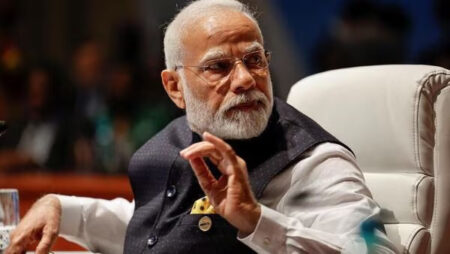According to the statute prohibiting abortion beyond 20 weeks for pregnancies resulting from consensual relationships, the court observed that her appeal could not be accepted. The court had stated at the hearing on Friday that it would not allow the petitioner to have a medical abortion at 23 weeks since doing so would essentially be murdering the foetus. The petitioner should think about giving the kid up for adoption.
Observing that an unmarried woman whose pregnancy results from a consensual relationship is obviously not covered by any of the clauses under the Medical Termination of Pregnancy Rules, 2003, the Delhi High Court denied interim relief to the 25-year-old unmarried woman who sought termination of her 23-week and 5-day pregnancy.
On the 18th of this month, the petitioner’s pregnancy would have reached 24 weeks.

Chief Justice Satish Chandra Sharma and Justice Subramaniam Prasad’s division bench made the following findings:
Because she was pregnant as a result of a consenting relationship, the court found that her request for an abortion after 20 weeks could not be granted.
A woman seeks an abortion after separating from her spouse.
Pregnancy termination was sought by the petitioner, a 25-year-old woman who would have reached 24 weeks of pregnancy on July 18. Her boyfriend, with whom she was in a consensual relationship, had refused to marry her.
Having a baby without being married would bring her psychological pain and social humiliation, and she wasn’t ready to be a mother, she said.

The medical termination of pregnancy after 23 weeks was declared by the court to be an act of murdering the foetus and would not be permitted by the court at Friday’s hearing.
“It’s not allowed by the regulations as they currently stand.”
It was recognized by the High Court that the statute gave unmarried women time to undergo medical termination of pregnancy treatment.
Legislators “purposefully eliminated consensual relationships” from the list of situations in which termination is authorized after 20 weeks and up to 24 weeks, the report stated.
On Friday, a two-judge panel led by Chief Justice Satish Chandra Sharma and Justice Subramaniam Prasad ruled that the petitioner, an unmarried lady whose pregnancy was the result of an amicable relationship, was not covered under the Medical Termination of Pregnancy Rules, 2003.
When it came to deciding whether or not unmarried women could have their pregnancies terminated, the Supreme Court of India said the Medical Termination of Pregnancy Rules, 2003 remained in effect.
Women are eligible for the termination of pregnancy for up to twenty-four weeks.
The following categories of women shall be considered eligible for termination of pregnancy under clause (b) of sub-section (2) of Section 3 of the Act, for a period of up to twenty-four weeks.
(a) Victims of sexual assault, rape, or incestuous relationships
(b) minors.
(c) marital status change while pregnant (widowhood and divorce).
(d) women with severe physical disabilities, as defined by the People with Disabilities Act of 2016.
(e) women who are mentally ill, including retarded women
(f) a foetal malformation that makes it likely that the baby won’t be able to live, or if it does, it will have severe physical or mental problems.
(g) pregnant women in humanitarian situations, disasters, or other situations that the government may call an emergency.
However, the woman’s attorney informed the court that the continuance of her pregnancy would negatively affect her physical and emotional health.
The judges then instructed the attorney to collect instructions from the petitioner and scheduled the matter to be heard after lunch.
After speaking with the petitioner, the attorney informed the court that she is unwilling to continue carrying the pregnancy to term.
The bench stated, however, that the law prohibits murdering the infant.













